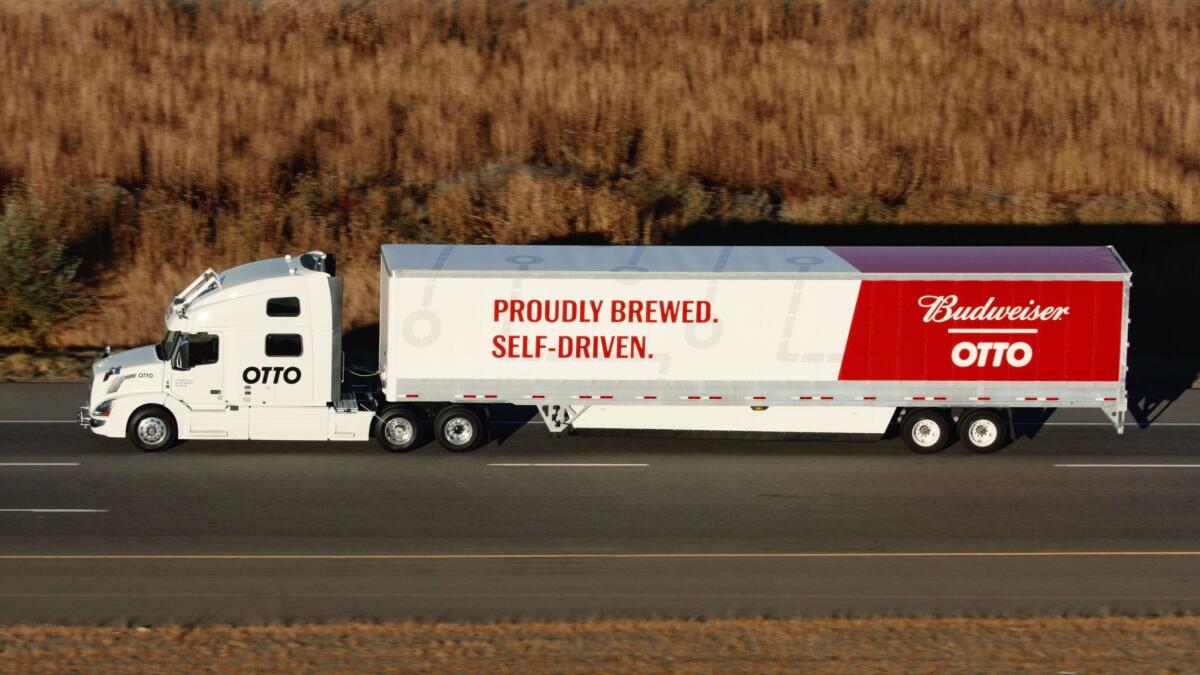Self-driving trucks need more scrutiny than self-driving cars, union says. Others disagree

Trucks could be the first type of vehicle on U.S. roads to be fully automated because their regular highway routes are easier for sensor technology to navigate than more complicated city grids.
But as self-driving technology continues to speed through development, key stakeholders disagree about whether trucks should be included in upcoming legislation governing autonomous vehicles.
In a Senate Commerce Committee hearing in Washington on Wednesday morning on the potential safety and economic implications of self-driving trucks, Ken Hall, general secretary-treasurer of the International Brotherhood of Teamsters, said trucks come with a different set of considerations than much lighter passenger vehicles. He also brought up concerns about cybersecurity and developing measures to protect against hacks that could turn big-rigs into weapons.
“We don’t believe you should just include 80,000-pound trucks without further study,” he said. “We need to make sure that we’re taking the time to look at some of the aspects that are so much different about trucks than they are automobiles.”
But Deborah Hersman, chief executive of the National Safety Council, said accelerating the deployment of automated trucks could provide significant safety benefits, saying it could be a “game changer when it comes to highway fatalities.” She said it didn’t make sense to put regulations for trucks and passenger vehicles on two different timetables.
“We need one level of safety for everyone who’s on the roadways,” Hersman said.
Hall said the Teamsters were also concerned that self-driving trucks would diminish employment opportunities for human drivers.
Chris Spear, chief executive of the American Trucking Assns. trade group, said the organization believed that full, “Level 5” autonomy that removes drivers from the equation was “decades away.”
Instead, he said the level of autonomy would likely be more along the lines of driver-assistance features. One of those is a concept called platooning, in which a human truck driver would manage and lead a couple of self-driving trucks that would follow behind a control vehicle.
“We don’t view it as a displacement issue,” he said. “We’re pushing hard to bring more talent into the industry. That’s what our fleets are preparing for — not for displacement.”
Twitter: @smasunaga
More to Read
Inside the business of entertainment
The Wide Shot brings you news, analysis and insights on everything from streaming wars to production — and what it all means for the future.
You may occasionally receive promotional content from the Los Angeles Times.











